Climate of the Hunter. 2020.
Directed by Mickey Reece. Screenplay by Reece & John Selvidge.
Starring Ginger Gilmartin, Mary Buss, Ben Hall, Jacob Ryan Snovel, Laurie Cummings, Sheridan McMichael, & Danielle Evon Ploeger.
Betmar-Heliand Productions / Divide/Conquer / Perm Machine Productions
Not Rated / 90 minutes
Horror / Mystery
★★★★
DISCLAIMER: The following essay contains SIGNIFICANT SPOILERS!
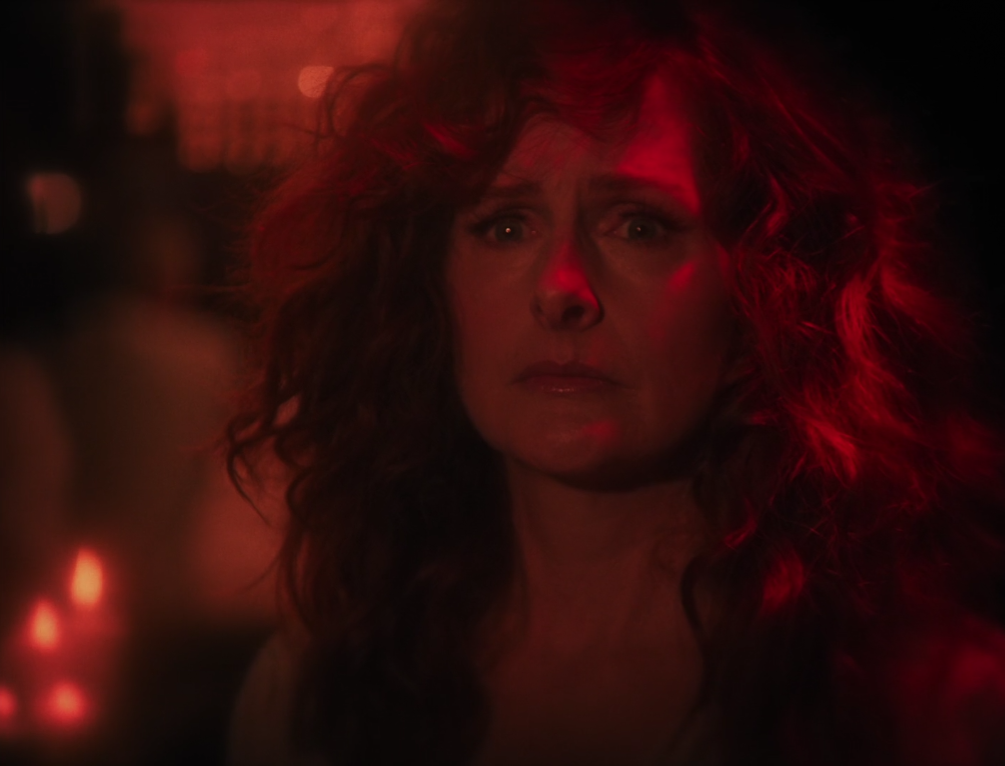 I’ve admittedly never seen a Mickey Reece film. That’s in spite of the fact that Reece is a prolific filmmaker, having directed about two feature films per year since his debut in 2008, along with several short films. He’s done a load of interesting stuff, by the looks of his resume: Mickey Reece’s Alien is a genre re-imagining of the early marriage years of Elvis and Priscilla Presley; 2013’s Tarsus is a drama centred on drug addiction; Johnny Boy is a Martin Scorsese-inspired crime drama; and the long list continues. Clearly Reece’s interests lie in many fun directions.
I’ve admittedly never seen a Mickey Reece film. That’s in spite of the fact that Reece is a prolific filmmaker, having directed about two feature films per year since his debut in 2008, along with several short films. He’s done a load of interesting stuff, by the looks of his resume: Mickey Reece’s Alien is a genre re-imagining of the early marriage years of Elvis and Priscilla Presley; 2013’s Tarsus is a drama centred on drug addiction; Johnny Boy is a Martin Scorsese-inspired crime drama; and the long list continues. Clearly Reece’s interests lie in many fun directions.
Now he’s brought us a 1970s vampire flick: Climate of the Hunter.
The screenplay, written by Reece and John Selvidge, involves two sisters— the hippy-ish, mentally unstable Alma (Ginger Gilmartin), and the more bourgeois, buttoned-up Elizabeth (Mary Buss)— having a get-together with an old friend-slash-flame, Wesley (Ben Hall). They’ve known Wesley since they were young girls. But seeing him again, he’s changed. While Elizabeth is caught up in Wesley’s charm Alma starts to believe there may be something sinister behind the changes. Alma’s worries are exacerbated by the arrival, and quick departure, of Wesley’s son Percy (Sheridan McMichael), as well as her own daughter Rose (Danielle Evon Ploeger). Could Alma be right? Could Wesley be… a vampire?
Climate of the Hunter is a gorgeous film to experience, harking back to the general era of ’70s and the look of cinema at the time. So many bold, vibrant colours. The set design alone will have you feeling like you’re back at your hippy aunt’s lakeside retreat in 1977. The best aspect of Reece’s film is how his use of the vampire feels unique. Like many great vampire works, this one posits the vampire as symbolic. Through Wesley, the undead creature takes on the form of a toxic male invading— and destroying— the lives of women. Reece lets us stew in an air of ambiguity for much of the film, guided by Alma’s fragile mental state. Once the plot fully takes shape in the lead up to the finale, the metaphoric power of the film’s vampire is obvious.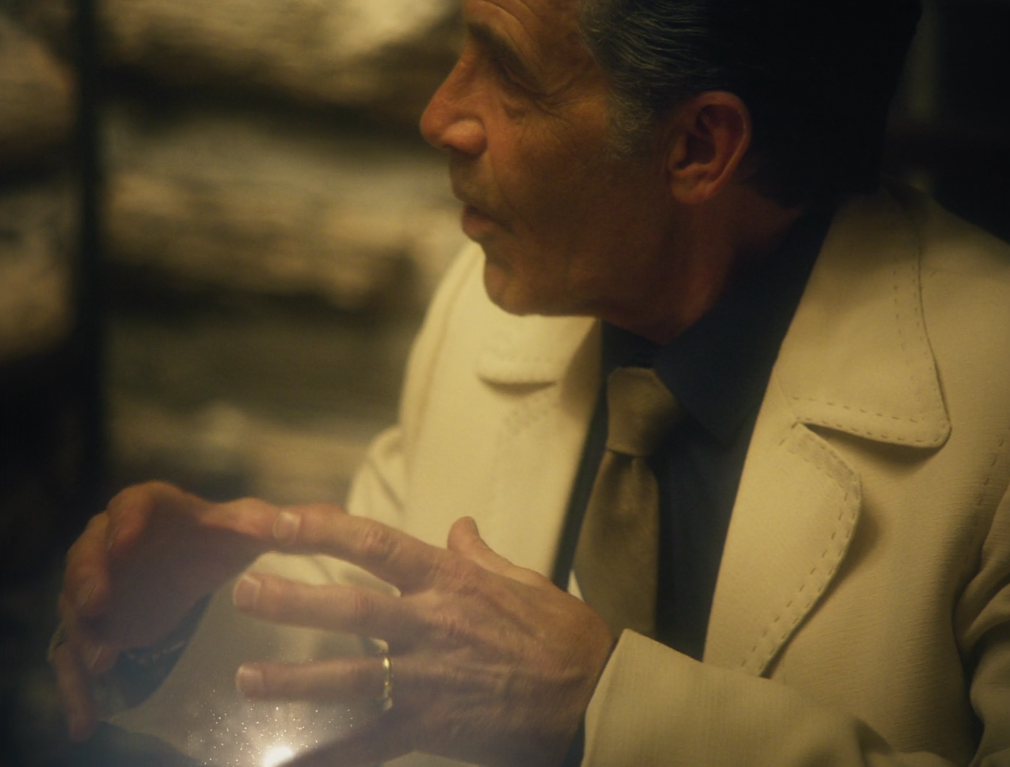 First and foremost, Reece gives us plenty of delicious ambiguity to navigate right from the opening shots. We see a shot of a hospital record that makes us aware of Alma’s psychological headspace. Most important in this opening revelation is that Alma’s delusional disorder perfectly complicates the ambiguity. The audience spends the film mainly in Alma’s point-of-view, apart from a couple key scenes. This makes her an unreliable narrator. And we’re never entirely sure what to believe, right until the final moments.
First and foremost, Reece gives us plenty of delicious ambiguity to navigate right from the opening shots. We see a shot of a hospital record that makes us aware of Alma’s psychological headspace. Most important in this opening revelation is that Alma’s delusional disorder perfectly complicates the ambiguity. The audience spends the film mainly in Alma’s point-of-view, apart from a couple key scenes. This makes her an unreliable narrator. And we’re never entirely sure what to believe, right until the final moments.
The film’s various chapters are all related to blood. Obviously we see this as related to the potential vampirism of Wesley. It likewise parallels well with the concept of blood as family, given that the story revolves around the sisters. Plus there’s the inclusion of Wesley’s son Percy, who doesn’t want to carry on the family name, and Alma’s daughter Rose, who’s looking forward to starting her own family. Specifically the mention of “bad blood” several times throughout Climate of the Hunter is of utmost importance.
We can perceive this defective blood imagery in a couple different ways. We can view “bad blood” as symbolic of mental illness passed down from one generation to the next. Alma likely worries what effect her literal blood may have on her daughter, or any child her daughter might have in the future. More importantly to the rest of this essay, we can look at the supposed “bad blood” of Wesley’s wife and Alma as being the mark given to women by the toxic male, branding them deficient right down to the physical level of their blood. Because it’s easier for a man to write a woman off as crazy and have her committed than to work to understand the complexities of a woman’s mind or be compassionate to a woman’s struggle.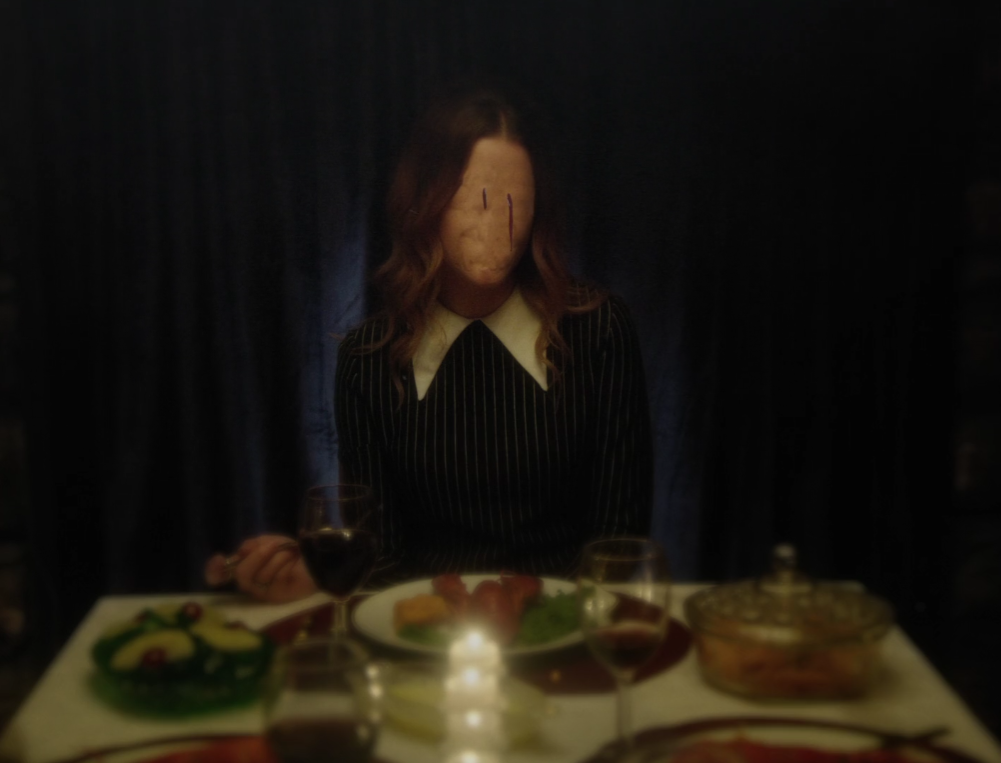 My interpretation of Reece’s film presents Wesley as vampire as toxic male. He’s the toxic man sucking the life out of the women around him, using them as a means to an end. Also, whether or not Wesley is a real vampire, he’s preying on the sisters. He’s known them since they were young, effectively feeding off their adoration his entire life. Of course his full vampiric impact is evident in the final shots once we see Alma’s correct, but only in the figurative sense. Wesley as the toxic male leaves women depleted in his wake. His wife Genevieve (Laurie Cummings) and Alma both end up committed after their relationship with him. The way I see the film, Wesley is a psychic vampire “chasing strange all over the globe,” and he’s looking to secure a legacy for himself at any cost.
My interpretation of Reece’s film presents Wesley as vampire as toxic male. He’s the toxic man sucking the life out of the women around him, using them as a means to an end. Also, whether or not Wesley is a real vampire, he’s preying on the sisters. He’s known them since they were young, effectively feeding off their adoration his entire life. Of course his full vampiric impact is evident in the final shots once we see Alma’s correct, but only in the figurative sense. Wesley as the toxic male leaves women depleted in his wake. His wife Genevieve (Laurie Cummings) and Alma both end up committed after their relationship with him. The way I see the film, Wesley is a psychic vampire “chasing strange all over the globe,” and he’s looking to secure a legacy for himself at any cost.
The film’s often primarily concerned with a male necessity for preserving their legacy. Wesley— apart from a somewhat anti-natalist speech at the dinner table about the “baby making urge” and an existential view on being born unwillingly— seems preoccupied with legacy. His son Percy doesn’t want to carry on the legacy. However, Alma’s daughter Rose does want a child, and Wesley seduces her. The toxic man seeks to carry on the family line, no matter the collateral damage, whether physical or emotional. Even Rose, who appears to really want children, seems guided towards her purpose as a housewife by her husband. She has a bourgeois education from the Juilliard School, yet since getting married she hasn’t been putting it to use. So we could also take Rose’s husband Tom as another potential toxic man, sucking the life out of a woman in order to get what he wants, to carry on his legacy via the blood a.k.a children.
Again with the blood!
There’s an irony in the film’s ending that actually offers a narrow glimmer of light through the darkness Alma’s experienced. Although she ends up in a decidedly awful place there’s a sense of liberation. Earlier in the film Wesley mentions the concept of Hegel‘s “bad infinity.” Essentially, a bad infinity, to Hegel, is an endless process, a series, that’s defined as infinite as opposed to what is finite. A true infinity is, to Hegel, a totality, as in a perfect circle with no end or beginning; infinite unto itself. Reece and Selvidge’s screenplay takes Hegel’s philosophy and applies it to the process of women falling into a cycle of choosing toxic men, allowing charm to negate the damage men do— becoming caught in a bad infinity, defining themselves and their worth in contrast to men. So, despite the tragedy of Alma’s situation at the end of the story, she’s managed to escape the bad infinity of men that Wesley represents, albeit she winds up trapped in the genuine, psychological infinity of her own mind.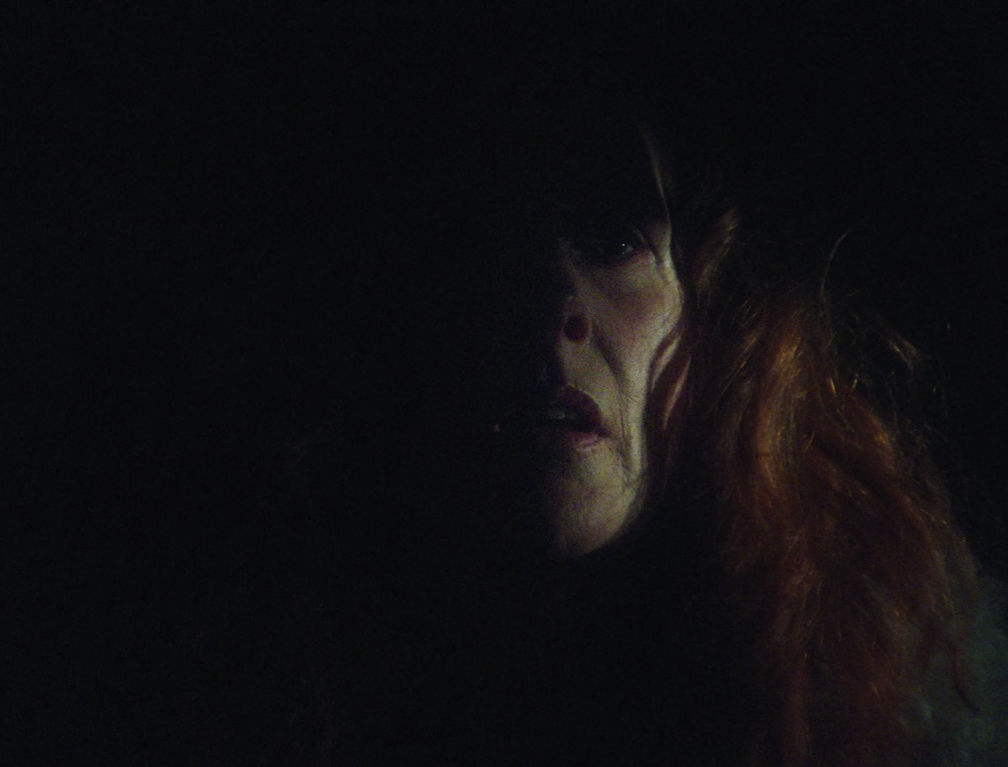
“You will always be the hunted”
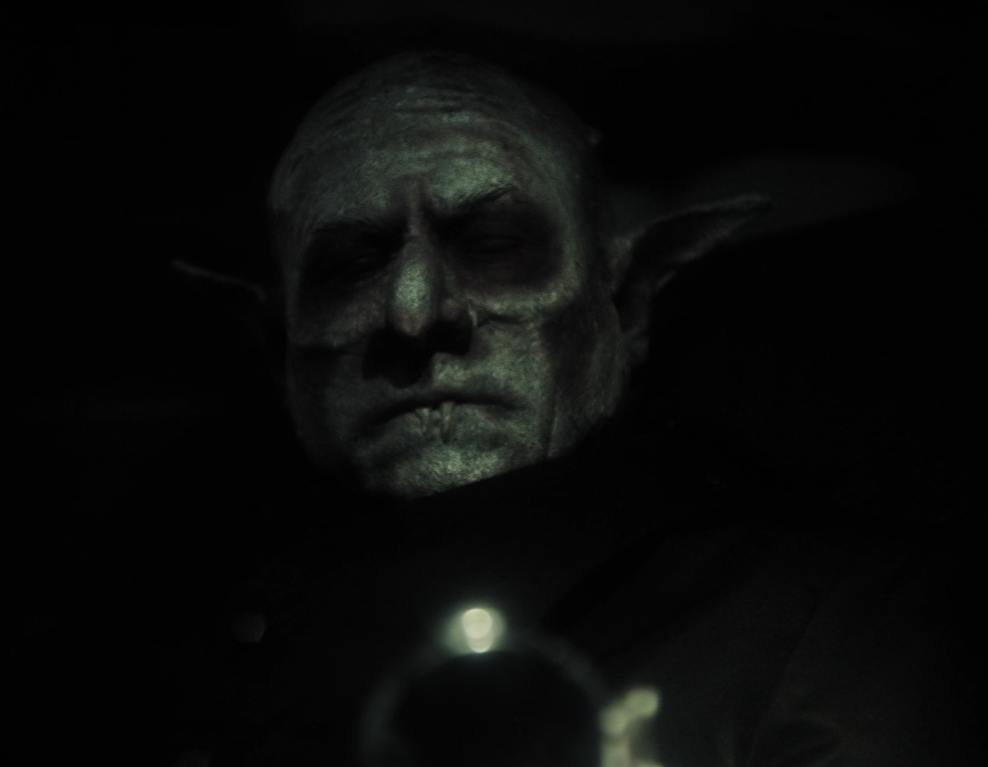 Vampire stories are a dime-a-dozen. Like zombies, demonic possession, and creepy kids, horror storytellers have milked the life out of vampires to the point it’s often generally expected by fans that we won’t often see anything new or unique. There are so many great vampire films. Plenty of bad and silly ones, too. Climate of the Hunter is a great one, for a number of reasons. There are even great visual nods, calling back to cinematic vampire classics, such as Nosferatu and 1931’s Dracula.
Vampire stories are a dime-a-dozen. Like zombies, demonic possession, and creepy kids, horror storytellers have milked the life out of vampires to the point it’s often generally expected by fans that we won’t often see anything new or unique. There are so many great vampire films. Plenty of bad and silly ones, too. Climate of the Hunter is a great one, for a number of reasons. There are even great visual nods, calling back to cinematic vampire classics, such as Nosferatu and 1931’s Dracula.
Reece and Selvidge’s screenplay is an intelligent exploration of vampires on a deeply symbolic level. The use of blood, having many layers and contexts within the same narrative, is a brilliant touch. Above all else, Reece’s vampire takes on the form of the toxic male. This allows the story to critique not just men’s treatment of women as vampiric, it also blows a fresh breath of air into the figure of the vampire for 2020.


Pingback: From Our Members’ Desks (Aug. 31, 2020) | Online Film Critics Society